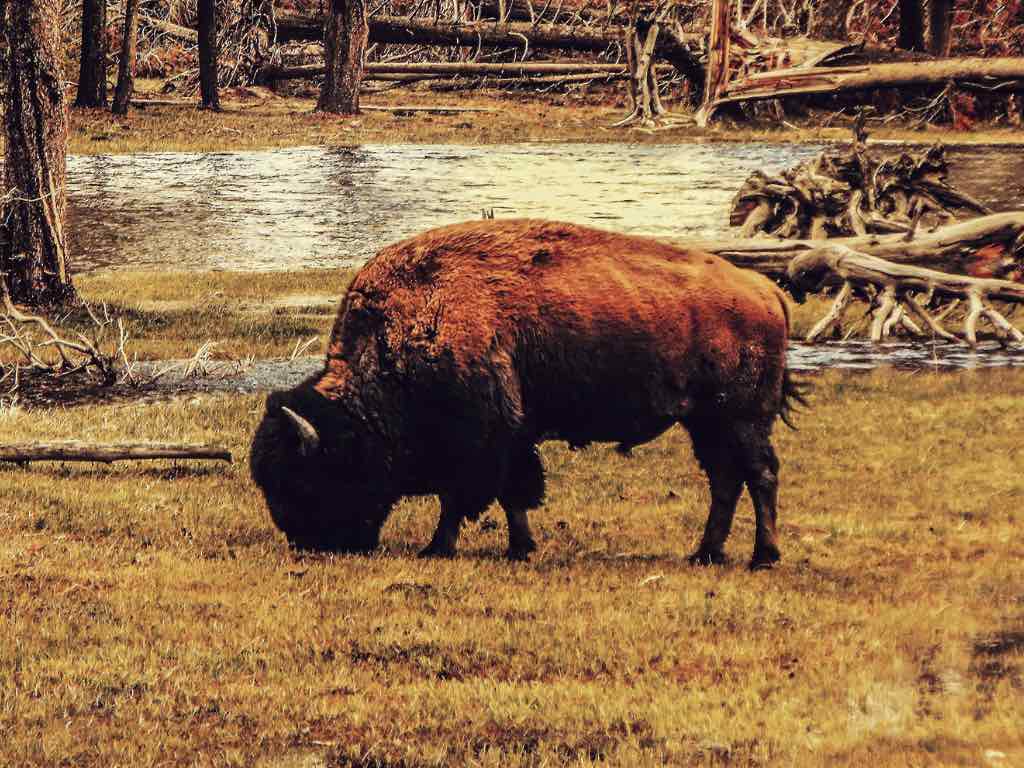
Bison Ranching: A Sustainable and Ethical Farming Practice
|
|
Time to read 3 min
Welcome to One Stop Halal!
Written by: Imran Shaikh
|
|
Time to read 3 min
In recent years, the demand for sustainable farming and ethical meat production has been on the rise. As consumers become more conscious of their choices environmental and ethical implications, they seek alternatives that align with their values. Bison ranching has emerged as a compelling solution, offering a sustainable and ethical approach to meat production. In this blog post, we will explore the principles of bison ranching, its environmental benefits, animal welfare considerations, and how it contributes to a more sustainable and ethical food system.
Bison ranching takes a regenerative approach to land management, focusing on the long-term health of ecosystems. Here are some key aspects:
Bison are well adapted to graze on native grasslands. Their grazing behavior helps maintain the health and diversity of plant species, preventing overgrowth and promoting the growth of nutritious grasses.
Bison ranching practices prioritize soil health by allowing natural grazing patterns and minimizing chemical inputs. Bison manure contributes to nutrient cycling, enhancing soil fertility and promoting healthy vegetation growth.
Bison ranching supports the preservation of biodiversity by creating a habitat for a wide range of plant and animal species. By mimicking natural grazing patterns, ranchers help restore and maintain diverse ecosystems.
Welcome to the Home of the Bison Meat. Our grass-fed Bison are pasture raised on lush-green American pastures and raised without antibiotics, steroids, or added growth hormones. We carry custom cuts of bison meat that are hard to find elsewhere. We deliver to your doorstep anywhere in the United States within 1-2 business days.
Bison ranching has several environmental benefits compared to conventional livestock farming practices:
Bison emit fewer greenhouse gases compared to cattle. Their digestive system produces less methane, a potent greenhouse gas contributing to climate change.
Bison require less water for their survival compared to traditional livestock. They have evolved to withstand dry conditions and more efficiently utilize water resources
Bison ranching promotes the conservation of natural resources such as land and water. By utilizing grasslands instead of converting them into croplands or industrial feedlots, bison ranching helps preserve valuable ecosystems.
Bison ranching prioritizes the well-being of the animals and offers several advantages in terms of animal welfare:
Bison can exhibit natural behaviors such as grazing, socializing, and roaming in open spaces. This allows them to express their innate behaviors and live in a more natural and stress-free environment.
Bison are hardy and resilient animals that require minimal human intervention. They adapt well to harsh environments, reducing the need for extensive veterinary care or artificial inputs.
Bison are typically raised without the routine use of antibiotics or growth hormones. This practice reduces the risk of antibiotic resistance and ensures that the meat produced is free from unnecessary chemical additives.
Bison ranching can have positive economic and social impacts:
Bison ranching operations require skilled labor for land management, animal care, and processing. This creates employment opportunities in rural areas, contributing to the local economy.
Bison hold significant cultural value for indigenous communities and are integral to their traditions and history. Supporting bison ranching helps preserve these cultural connections and provides economic opportunities for indigenous ranchers.
Bison meat production supports local and regional food systems, fostering connections between producers and consumers. By choosing bison meat, consumers can support local ranchers and contribute to the resilience and sustainability of their communities.
Bison ranching offers a sustainable and ethical alternative to conventional livestock farming of bison meat. With its regenerative land management practices, reduced environmental impact, focus on animal welfare, and support for local economies, bison ranching aligns with the values of conscious consumers. Individuals can actively participate in creating a more sustainable and ethical food system by choosing bison meat. Let us embrace the principles of bison ranching and contribute to a healthier planet, healthier animals, and healthier communities.

© 2026 One Stop Halal, Inc.